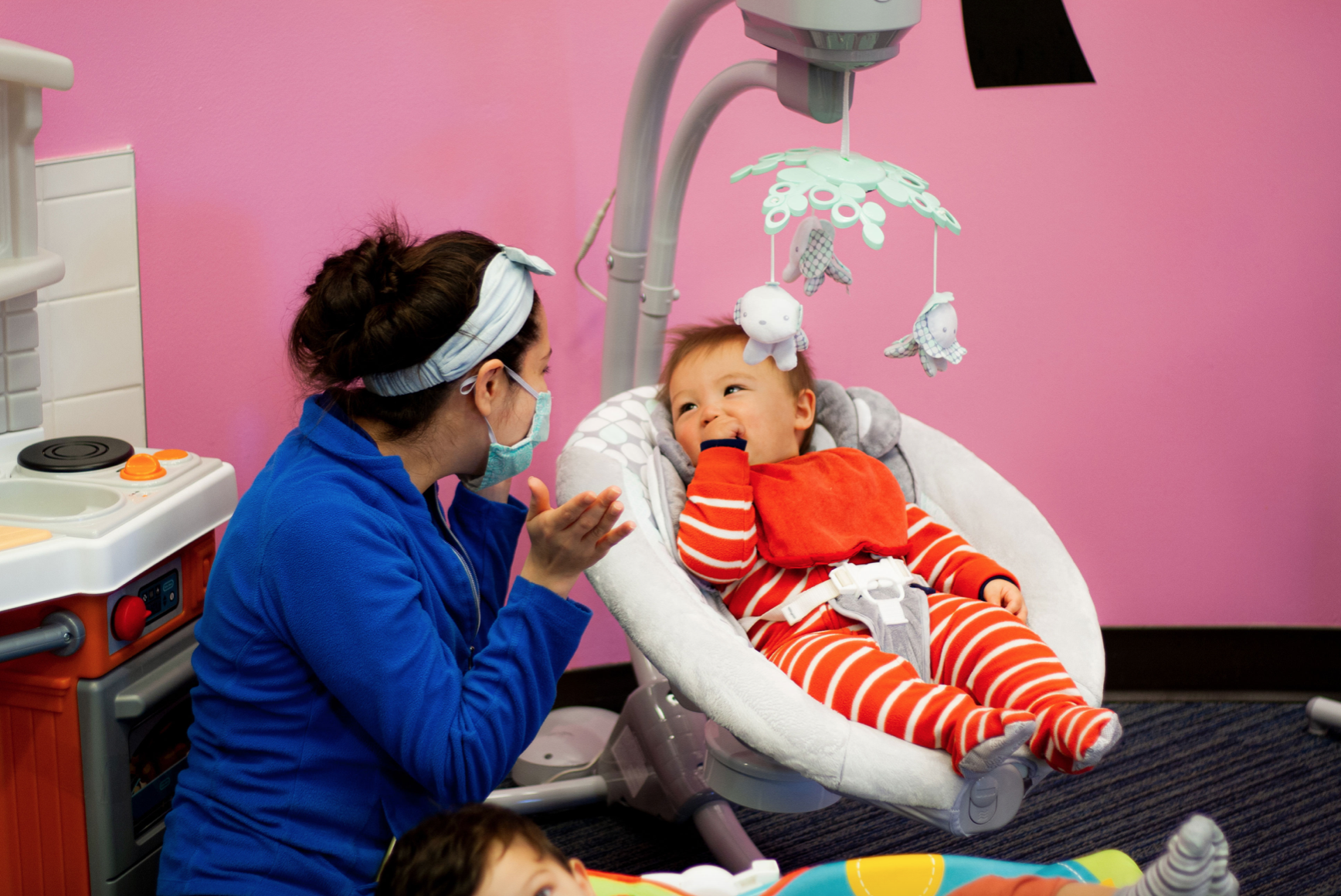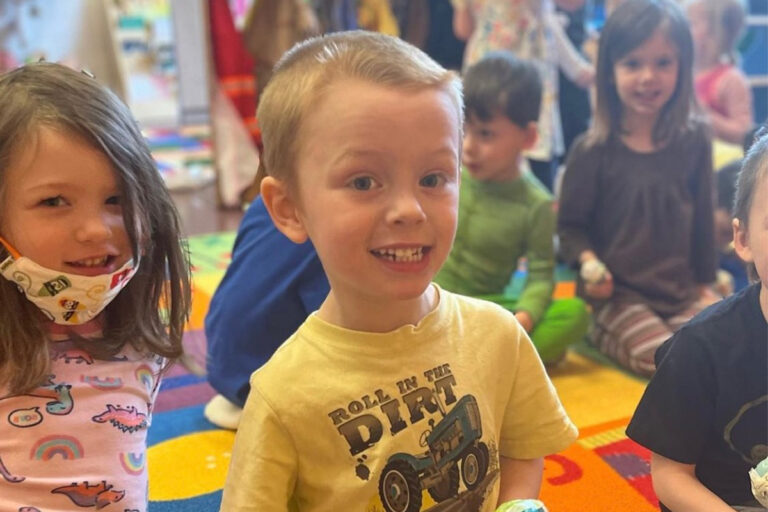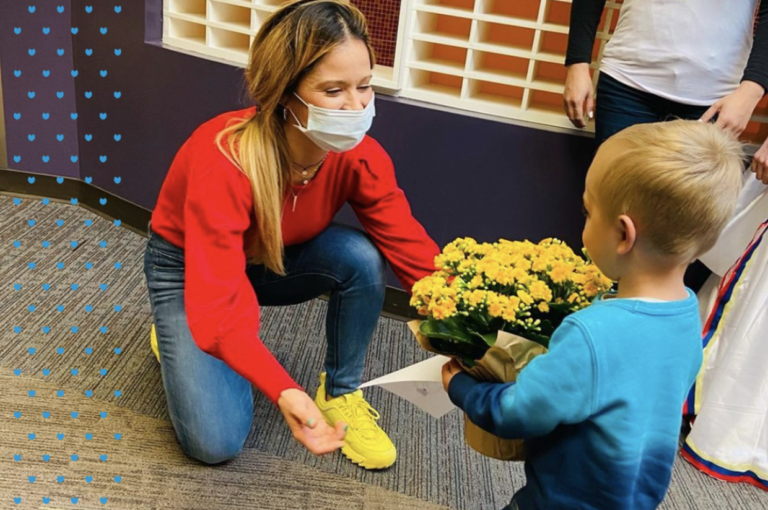How to Transition Baby to Daycare: A Practical Guide for Parents

Starting daycare is a big milestone for you and your baby. Whether you’re returning to work or choosing daycare to support your baby’s development, the transition can feel emotional and overwhelming. You’re not alone. Many parents wonder: What is the best age to start daycare? Will my baby cry all day? How do I prepare them for this big change?
This guide offers practical tips to help you ease your baby into daycare with confidence, compassion, and calm.
When Is the Right Time? Understanding Baby Daycare Readiness
There is no single “right” age to begin daycare. Every family and baby is different. However, many centers, including Casa de Corazón, begin offering infant care starting at six weeks old.
What’s the Best Age to Send a Baby to Daycare?
While six weeks is often the earliest option, many families wait until 3 to 6 months to start daycare. Here are some pros and cons of different ages:
- 6 Weeks to 3 Months: Infants are adaptable and not yet deeply attached to routines. This can make the transition smoother but also requires parents to be emotionally prepared.
- 4 to 6 Months: Babies are more alert and social. They benefit from interaction and sensory stimulation but may show some clinginess.
- After 9 Months: Older babies may have a harder time separating due to peak separation anxiety stages.
Parental readiness is just as important. If you feel comfortable and trust your childcare choice, your baby will pick up on your confidence.
Is It Hard for Babies to Adjust to Daycare?
Yes—and that’s okay. Adjustment is normal. Babies often express discomfort with tears, clinginess, or changes in sleep. Most infants adjust to daycare within 1 to 3 weeks. That time helps them build new bonds, regulate emotions, and adapt to a new environment.
Teachers trained in early childhood development (like those at Casa) are skilled at comforting babies, reading their cues, and helping them build trust.
“Every baby is different, but we usually see the toughest days early in week one. By week two, there’s more eye contact, curiosity, and calm. Parents are always amazed at how resilient their babies are.” — Casa Infant Program Director
How Long Does It Take to Transition a Baby to Daycare?
Transitions are not one-day events. They are gradual processes. Here is a typical timeline:
- Days 1–3: Drop-offs are hardest. Babies may cry more. Parents often feel guilt.
- Days 4–7: Familiarity starts building. Some babies eat or nap better. Others still resist.
- Week 2: Caregivers become familiar faces. Routines feel more predictable.
- Week 3 and beyond: Most babies adjust and begin to thrive.
That said, temperament matters. Some babies may take longer. Sleep patterns, sensitivity to noise, and attachment style all influence transition time.
If possible, consider a phased start: a few hours the first day, increasing over the week. Ask your center if they offer this flexibility.
How to Prepare Your Baby for Daycare Before the First Day
You can start preparing for daycare weeks before the first drop-off.
Start Early with Gradual Separation
At home, begin practicing short periods of separation:
- Let your baby play in a different room while you check in periodically.
- Allow trusted family members to feed or soothe them.
- Step outside while another caregiver watches them.
These gradual steps help build confidence and resilience.
Visit the Daycare with Your Baby
Most centers, including Casa, offer parent tours or orientation visits when you are first choosing a daycare.
Bring your baby along. Let them explore, hear the sounds, and see the caregivers. Even short exposure to a new environment helps reduce anxiety.
Talk to the Staff About Your Baby’s Routines
Consistency matters. Share your baby’s feeding and nap schedules, favorite soothing techniques, and any comfort items they use (blankets, pacifiers). Open communication builds trust between you and the staff.
Creating a Smooth Daycare Drop-Off Routine
The first day will be emotional. A predictable routine helps both of you feel grounded.
Develop a Consistent Goodbye Ritual
Babies may not understand words yet, but they understand patterns. Use the same phrase each morning, sing a goodbye song, or give a special hug. Keep it short and positive.
Keep Emotions Calm and Reassuring
Babies pick up on your cues. If you linger with nervous energy, they may feel uncertain. Smile, speak softly, and trust the caregivers. Your calm energy sets the tone.
What to Expect in the First Week of Daycare
Your baby might cry at drop-off, nap less, or eat differently. This is normal. Many babies also become extra clingy at home.
Most daycares offer updates through an app or daily reports. At Casa, families receive real-time photos and activity logs that help ease the worry.
“It was comforting to receive updates throughout the day about how my child was doing. I got photos of meals, naps, and even playtime. It helped me feel connected and confident in our decision.” — Casa Parent
Talk to your baby positively at home about daycare. Even if they are too young to understand, your tone creates a positive association.
Daycare vs. Staying Home: Addressing Common Parental Guilt
Sending your infant to daycare can bring up guilt. Many parents wonder if they’re doing the right thing.
But the truth is, choosing daycare is not giving up. There are many benefits to infant daycare. It’s adding support. High-quality infant care helps your baby develop early social skills, emotional regulation, and language foundations.
It also helps you avoid parental burnout, focus on your career, or simply care for your well-being—and that’s good parenting.
“I knew Casa was the place for our baby when I toured and felt the warmth of the teachers. Everyone smiled and greeted us, even staff from other classrooms. Casa has always felt like an extension of our family.” — Casa Parent
Final Thoughts: You’ve Got This
Starting daycare is a transition, but it’s also a new beginning. With preparation, communication, and trust, your baby can thrive in their new environment, and you can enjoy peace of mind.
Explore Casa de Corazón’s nurturing infant programs and request a tour today to meet our caring staff and learn how we support every baby’s transition.


